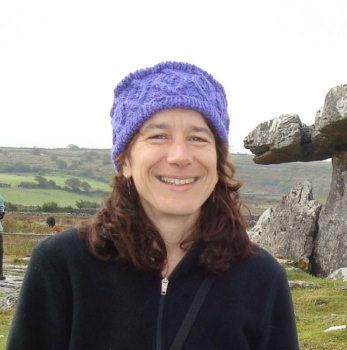Society Research Theme
Encompassing the governance and socio-cultural dimensions of nature recovery.

About
This theme examines how ‘nature recovery’ is defined and governed at multiple scales across diverse landscapes, how its costs and benefits are distributed, and what lessons this holds for promoting equitable and restorative human-nature relations. The initial focus will be on case study landscapes in the UK and Ghana supporting a range of land uses, including conservation, recreation and the production of food and fibre for commercial and subsistence use.
One research strand examines the political ecology of nature recovery at multiple scales, with a strong emphasis on the design and implementation of participatory approaches to co-creating and managing nature recovery. This includes analysis of existing and proposed public and private policies, laws and standards for public participation in nature restoration and land use decision-making and how they intersect with grassroots and business recovery initiatives and local landowner engagements.
As part of this work, we will explore complementarities and tensions between scientific knowledge, including that generated by this project, and local knowledge of nature and place, and how different knowledge claims are used, accepted or rejected, and by whom. We will also examine how nature recovery efforts shape equality of access to land, nature and finance across diverse social groups.
Our second strand examines different cultural understandings of nature and how these configure the possibilities for nature recovery. We anticipate that successful strategies for nature recovery will require broad cultural support from landowners, farmers, citizens, and their representatives. But we know that these groups often disagree about what nature is and how it ought to be managed. We will investigate how culture and group identity shape different patterns of behaviour that impact nature recovery. We are especially interested what digital media tell us about popular understandings of nature and in the potential of digital technologies to enable new forms of environmental citizenship.
Projects
Theme outputs
- Society
- Scale and Technology
- Remote sensing
- Society
- Remote sensing
- Scale and Technology
- Awards
- Remote sensing
- Scale and Technology
- Society
- Awards
Zhang-Zheng H; Adu-Bredu S; Duah-Gyamfi A; Moore S; Addo-Danso SD; Amissah L; Valentini R; Djagbletey G; Anim-Adjei K; Quansah J (2024). Contrasting carbon cycle along tropical forest aridity gradients in West Africa and Amazonia.. Nature communications.
Tropical forests cover large areas of equatorial Africa and play a substantial role in the global carbon cycle. However, there has been a lack of biometric measurements to understand the forests’ gross and net primary productivity (GPP, NPP) and their allocation. Here we present a detailed field assessment of the carbon budget of multiple forest sites in Africa, by monitoring 14 one-hectare plots along an aridity gradient in Ghana, West Africa. When compared with an equivalent aridity gradient in Amazonia, the studied West African forests generally had higher productivity and lower carbon use efficiency (CUE).
Kumeh, Eric Mensah. (2023). How agroecology can help build dynamic cocoa agroforests in Ghana.. Agroforestry at work .
This article describes the transformative potential of agroecology as a beacon of hope for reestablishing balance in Ghana’s cocoa-forest mosaic landscapes. Agroecology — rooted in the principles of ecological harmony and sustainable agriculture — offers a way to revive and restore biodiversity, empower farmers and ensure a resilient and thriving future for cocoa farms.
Boonman, C.C.F., Serra-Diaz, J.M., Hoeks, S., Guo, W-Y., Enquist, B.J., , B., Malhi, Y., Merow, C., Buitenwerf, R., Svenning, J-C. (2024). More than 17,000 tree species are at risk from rapid global change.. Nature Communication.
Trees are pivotal to global biodiversity and nature’s contributions to people, yet accelerating global changes threaten global tree diversity, making accurate species extinction risk assessments necessary. To identify species that require expert-based re-evaluation, we assess exposure to change in six anthropogenic threats over the last two decades for 32,090 tree species. We estimated that over half (54.2%) of the assessed species have been exposed to increasing threats. Only 8.7% of these species are considered threatened by the IUCN Red List, whereas they include more than half of the Data Deficient species (57.8%). These findings suggest a substantial underestimation of threats and associated extinction risk for tree species in current assessments. We also map hotspots of tree species exposed to rapidly changing threats around the world. Our data-driven approach can strengthen the efforts going into expert-based IUCN Red List assessments by facilitating prioritization among species for re-evaluation, allowing for more efficient conservation efforts.
News & events
-

Farmer cluster brings future vision of the Cotswolds under nature recovery to life with professional illustrator
8 July 2024To achieve nature recovery at scale, we must first imagine it. Picturing the future is a crucial step toward enabling change. In collaboration with the North East Cotswolds Farmer Cluster, researchers from the Leverhulme Centre for Nature Recovery conducted a workshop to discuss and deliberate visions for the future of the Cotswolds. The North East […]
news -

Oxford researchers find African forests even more productive than Amazonia.
6 June 2024Whilst most studies on the ecosystem functioning of tropical forests have focussed extensively on Latin America or Asia, researchers at the University of Oxford say comparing findings with studies in Ghana has produced interesting and differing results showing that more studies need to be made in Africa. Tropical forests cover large areas of equatorial Africa […]
news Blog -

Harnessing the power of digital tools for community engagement in rewilding
8 May 2024Dr Caitlin Hafferty Social science researchers from the Leverhulme Centre for Nature Recovery (LCNR) are collaborating with Highlands Rewilding to explore innovative digital technologies for enhancing community engagement in rewilding. Highlands Rewilding, which aims to both re-wild and re-people the Scottish Highlands through Nature-based Solutions, is working closely with the LCNR to improve its strategy […]
news Blog

















